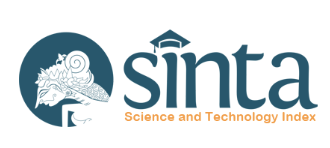MENGEMBANGKAN KECERDASAN INTERPERSONAL MELALUI METODE BERMAIN PERAN PADA ANAK USIA DINI DI RA AL HIDAYAH BANDUNG
DOI:
https://doi.org/10.22460/ceria.v1i5.p1-6Keywords:
intelligence, interpersonal intelligence, role playing methodAbstract
Interpersonal intelligence, also known as social ability, is part of multiple intelligences. Compound intelligence is a potential that has existed since the age of o months. This potential genetic potential of both parents is hereditary. Such intelligence will be increasingly apparent if stimulated, trained and developed. Interpersonal intelligence is very important because it relates to the level of socialization, and greatly influences life in the future, when living and socializing in the community. Because the indicators of having interpersonal intelligence, among others, have good social communication, have thoughts about the people around them, and have the sensitivity to respond to the circumstances around them. Judging from the importance of individuals to have interpersonal intelligence, it would be good to develop early. Early childhood, are individuals in the age group 0-6, who have a potential period to receive various learning experiences from various senses and sensory in their body. The development of children's abilities will be more directed, planned with various methods of applying learning in PAUD institutions. An effective learning approach to developing interpersonal intelligence is by the role playing method. The role playing method is a method that invites children to want to establish relationships with other people, do activities simultaneously, listen and express language, so as to form communicative and friendly characters. The character is an indicator part of interpersonal intelligence.
References
Dinas Pendidikan Nasional ( 2014) Standar Tingkat Pencapaian Perkembangan PAUD, Permediknas 137 tahun 2014, Jakarta : Dinas Pendidikan Nasional
Jamaris (2017), Pengukuran Kecerdasan Jamak,Bogor: Ghalia Indonesia.2017
Dkk, Masitoh (2007), Strategi Pembelajaran TK, Jakarta : Universitas Terbuka.2007.
R., Moeslichatoen (2004), Metoda Pengajaran di Taman Kanak – Kanak, Rineka Cipta: Jakarta, 2007.
Safaria, T. (2005), Interpersonal Intelligence Metode Pengembangan Interpersonal Anak, Yogyakarta: Amara Books
Sujiono (2010), Bermain Kreatif Berdasarkan Kecerdasan Jamak, Index: Jakarta, 2010.
Sujiono (2013), Konsep Dasar Pendidikan Anak Usia Dini,Index:Jakarta,2013







